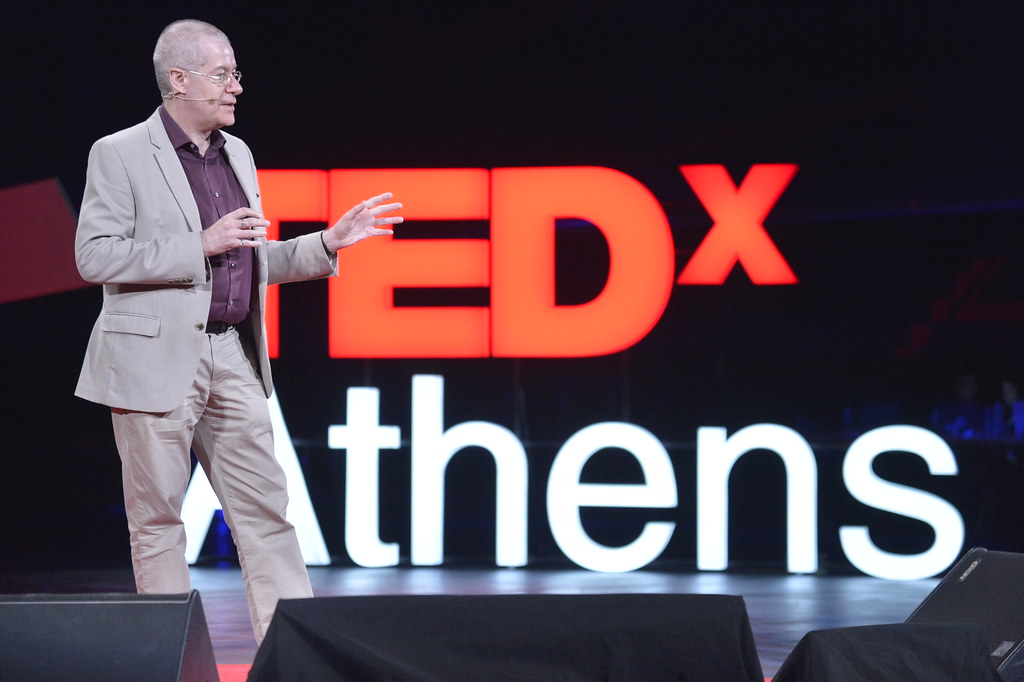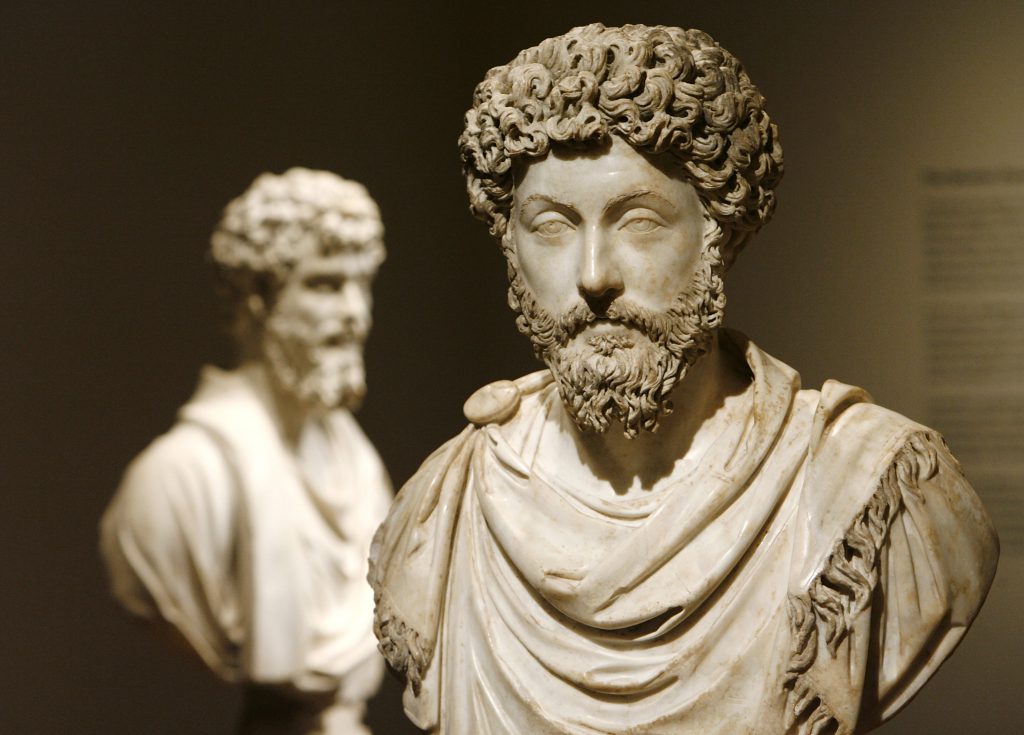
What do we control in our life? Our failures, heartbreaks, losses, all the events that have happened to us, good or bad, are constantly flowing as if we are watching a movie in which we are the protagonist, although we try to intervene, but our impact on all these events is limited.
We study for an exam for months, only to be able to answer the questions that will determine our entire future in two hours. We make sacrifices for a relationship that the other party suddenly decides to end for a reason that seems quite meaningless, and we compromise our own values for our friends who do not value us, perhaps we think.
At night, we stay awake for the next week’s presentation at the company, and we bid farewell to our dreams of promotion when the first twenty minutes of the presentation are barely over when our boss suddenly leaves.
So, which of all these can we control? How can we avoid pain, sadness, anger, disappointment, when failure is out of the question and it is unfortunately not possible for us to predict what the future will bring us?
Although it is not possible for us to control the events that happen to us or happen around us, the stoic school , which is shaped on the basis that we can control the meaning we attribute to them, is one of the most important currents of Hellenistic philosophy. The Greek philosopher Epictetus, one of the most important followers of the school, draws attention to how limited the individual’s control is, and describes this situation as a paradox ; because by controlling the meanings of what we cannot control, in other words, what they express to us, we are actually in control of everything . It is up to us and only to determine how we interpret events, other people’s decisions, good or bad news. Because while all the events and objects around us are actually neutral, we actually endow them with their positive/negative charges by filtering them in our own perspective.
You may be interested in: Philosophy That Will Totally Increase Your Resilience Against Life’s Challenges: The Stoic Life
Massimo Pigliucci, a professor of philosophy who is currently teaching at the City University of York on Stoic philosophy and gaining worldwide recognition for his highly engaging TED talk, recommends that you try a mind trick that you can apply to any situation you encounter in your daily life, for once: events are their head. This trick is based on interpreting completely unemotionally and as impartially as possible, imagining that you are not the protagonist but merely a spectator.

Sounds pretty easy, right? What about adapting it to daily life? Taking it through an ordinary discussion will provide a more understandable illustration at this point.
What you should consider quietly in the discussion is actually quite simple: What reasons did the other party give you before or during the discussion? Could there be some truth to this? Can you understand why the other person thinks or behaves this way? If you had experienced this event with someone else or if the parties had been the opposite, would the discussion have followed the same course?
In short, you need to try to handle the situation you are facing with a cold and plain realism and consider all these factors as if you were examining the numbers, statistics or arguments presented to you.
Adopting and putting this approach into practice right away may not be as easy as thinking about it. Of course, overcoming anger, stress, loneliness, and longing is a skill that takes practice.
According to Pigliucci, emotion management is not much different from learning to drive or play an instrument: although lessons and practice are needed and mistakes are made in the process, you can be sure to improve with each event.
Victims of Their Own Interpretations: You Are Above Those Around You If You Know

The symbol of the Golden Age of his empire, the famous Roman Emperor Marcus Aurelius, reiterated to himself that in order to implement this strategy, he would encounter many stressed, angry, impatient, dissatisfied people every morning during that day, and none of these people did it consciously, but only the victims of their own erroneous interpretations. writes his ethics 12 bookshelves In Ta eis Euton (Thoughts to Myself). He, on the other hand, knows every day that he will not respond to the negativity and negative thoughts he is exposed to, since he is capable of looking at his interpretations from afar and evaluating events in a neutral way.
You may be interested in: 10 Exciting Quotes from Marcus Aurelius’s ‘Reflections on Myself’
Handling Emotions Professionally and Avoiding Epicureanism

Barring your feelings about the things you cannot control can be an important step in adapting this school of thought to your daily life, on the other hand, the stoic philosophy is not limited to this advice. For example, “What if this is the last book I read?” the coffee you drink with the thought of “what if I don’t have a chance to drink coffee again?” Stoicism advises you to sip by keeping the question in mind: In short, you should include activities in your life where you will focus on feeling to the last bit instead of ignoring all your emotions that you professionally guide during the decision-making process.
Contrary to the epicurean philosophy, which is shaped on the motto of living in the moment by chasing only momentary pleasures, the stoa school encourages the postponement of instant pleasures for a greater pleasure waiting in the future, while including the smallest details, in order to get the maximum efficiency from all activities in daily life, the concept of value from a different perspective. approaching. For example, you should aim to increase your gratitude through comparison, as you gain a new perspective on appreciating the value of your remaining meals by trying to pass off your meal once a month with a simple meal that you would have had to eat if you had no opportunity, according to contemporary commentators of philosophy.
You may be interested in: 20 Golden Aphorisms From Seneca That Will Change Your Perspective On Life
Keep in Mind: You Actually Have Nothing

Adopting the idea that nothing really belongs to you, on the contrary, it is a trust that you are expected to deliver one day, plays a key role in getting over your losses with the least damage, according to the Stoic belief. Think about it: even a service offered to you without any charge actually costs your time, if it is a gift, it takes up space. If you proceed with this logic, it is not possible for you to get something in your life for nothing in return, that is, to be the complete owner of any object. Epictetus deals with this issue in his book, The Guide to Life, as follows:
Never say “I lost that”, just say “I gave it back”. Is your child dead? No, it was returned. Is your wife dead? No, it was returned. “My property has been confiscated.” It was also given back. “But the person who took it was a bad person.” What do you care who is assigned to take back what was given to you? Take care of it as long as you have the trust, but don’t think it belongs to you, like a passenger staying in an inn.
It may interest you: The Phrase We Should Remind Ourselves At Every Moment of Life: Memento Mori
If you want to learn more about the Stoic philosophy, I strongly recommend that you take a look at the content and links I have shared below. Also, take a look at the books of William B. Irvine and Massimo Pigliucci, as well as the websites where they write very clear and enlightening articles on the subject, free from philosophical and psychological terms.













